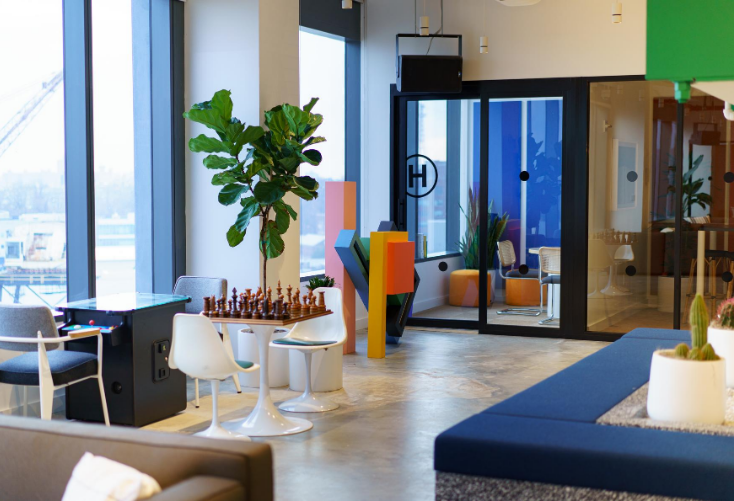Hand selected flexible workspace news from the most reliable sources to keep you ahead of the pack. We find all the latest news, so you don’t have to. Morning and afternoon updates. Stay in the know.
Here’s what you need to know today:
- WeWork’s Membership Dips, But Revenue Increased
- Finding Balance Between Remote And In-person Working
- Zillow’s Shift To Remote Working
WeWork’s Membership Dips, But Revenue Increased
Despite WeWork seeing a dip in membership in the second quarter of 2020, the company received $1.1 billion in financing from SoftBank.
The company ended the quarter with 612,000 memberships, a dip from 693,000 at the beginning of the quarter.
“The numbers illustrate that similar to virtually every company around the world, COVID-19 has had an impact on our business,” said Kimberly Ross, WeWork’s chief financial officer. “However, they also show our five year plan in action.”
The company’s revenue also saw a 9% year-on-year increase to $882 million and its first quarter revenue came in at $1.1 billion.
At the moment, the company has $671 million in free cash outflow, which included $116 million in restructuring costs, such as severance for the layoffs.

Finding Balance Between Remote And In-person Working
Companies have started to reconsider the need for large centralized offices in the wake of the ongoing pandemic. Several organizations have continued to operate mostly remotely and are finding this arrangement to be useful in many ways. However, the best post-pandemic workplace strategy should combine both in-office and remote environments.
Although research has long proven that remote working improves productivity, job satisfaction and work-life balance, doing so in unprecedented times has caused stress. Many workers now have to juggle work and home responsibilities within the same space.
Still, the benefits of remote working are hard to ignore. Less commutes and more flexibility make working from home essential for workplaces of the future.
This might cause some to wonder whether the office will still be necessary moving forward. In short, yes.
Physical offices offer a place to properly conduct team meetings, as well as provide a space for workers who find working at home to be distracting.
Sociologist Richard Sennett’s studies from nearly 40 years ago found that, although people do need privacy to accomplish quality work, they also need places that bring them closer together with colleagues.
Additionally, offices are essential to nurturing a workplace culture. While companies have attempted to keep employees engaged virtually through Zoom happy hours, these events do not properly replace face-to-face interactions.
To find a balance between these two work styles, companies should consider adopting satellite offices in suburban areas. By doing so, employees have the option to go into the office when necessary, while still being close to home.

Zillow’s Shift To Remote Working
Zillow is one of many major companies to announce that it would be allowing its employees to work from home after the pandemic. The company has long prided itself in its collaborative-driven culture thanks to its startup roots, so remote working was not always embraced. But now, Zillow’s chief people officer Dan Spaulding has explained why that has changed.
“For the vast majority of our employees, we are committing that we’re going to be a flexible employer of the future,” said Spaulding. “That means for some workers, they may never come back to an office. We are committed to keeping our offices and we are going to use our offices as a place where people will come and collaborate with their teams and other teams. We will also have an office available to work in when, say, they have small children at home or they have situations where they have a lot of roommates and they are going to want a place to go and work.”
Spaulding added that as the company makes the move to a more hybrid workforce in the coming months, there will also be changes to benefits and compensation for workers who decide to work from home permanently. This includes providing benefits that are more wellness-focused.
In order to keep employees engaged and maintain its strong collaborative culture, Spaulding says that the company has provided a $200 stipend for necessary home office supplies. Additionally, the company has been hosting online events such as virtual art and meditation classes, and more.

















